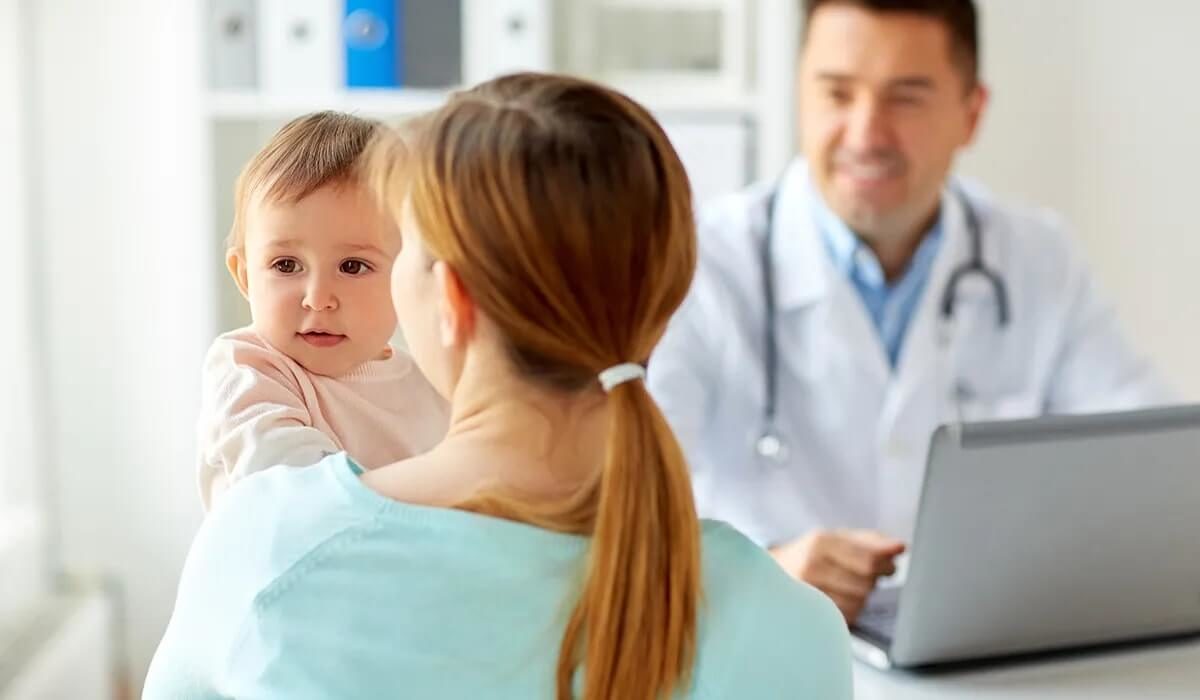Introduction
Pneumonia is a significant cause of childhood morbidity and mortality, particularly in developing countries. It is an infection of the lungs that can be caused by bacteria, viruses, fungi, or parasites. Early diagnosis and appropriate treatment are crucial for a child’s recovery. This article outlines the approach to diagnosing and managing pneumonia in children, including when to seek urgent medical attention.


Understanding Pneumonia in Children
What is Pneumonia?
Pneumonia is an infection that inflames the air sacs in one or both lungs, leading to symptoms such as fever, cough, difficulty breathing, and chest pain. It can be classified into:
- Bacterial pneumonia (e.g., Streptococcus pneumoniae, Haemophilus influenzae)
- Viral pneumonia (e.g., RSV, influenza, adenovirus)
- Atypical pneumonia (e.g., Mycoplasma pneumoniae, Chlamydophila pneumoniae)
Common Symptoms of Pneumonia in Children
- Cough
- Fever
- Rapid breathing (tachypnea)
- Nasal flaring and grunting
- Chest retractions (sinking in of the chest with breathing)
- Lethargy
- Cyanosis (bluish discoloration of lips or nails)
- Poor feeding or vomiting (in infants)
Diagnostic Approach to Pneumonia in Children
Clinical Evaluation
A child suspected of having pneumonia should undergo a detailed history and physical examination. Key aspects include:
- Onset and progression of symptoms (acute vs. gradual)
- Presence of fever, cough, difficulty breathing
- History of exposure to sick contacts
- Vaccination status (e.g., pneumococcal and Hib vaccines)
- Underlying conditions (asthma, malnutrition, immunodeficiency)
Physical Examination Findings
- Tachypnea: Most sensitive sign of pneumonia
- Crackles, wheezing, or diminished breath sounds
- Use of accessory muscles for breathing
- Cyanosis (in severe cases)
Investigations for Pneumonia in Children
1. Chest Radiography (X-ray)
- Not always required in mild pneumonia
- Helpful in detecting complications such as pleural effusion or empyema
- Viral pneumonia often shows bilateral interstitial infiltrates
- Bacterial pneumonia often shows lobar consolidation
2. Blood Tests
- White Blood Cell (WBC) Count: Elevated in bacterial pneumonia (>15,000-40,000/mm³)
- CRP and Procalcitonin: Markers of bacterial infection
3. Microbiological Tests
- Nasopharyngeal swabs for viral PCR tests
- Blood cultures (for detecting bacterial pathogens)
- Sputum culture (in older children)
4. Ultrasound and CT Scan
- Used in severe or complicated pneumonia to detect pleural effusion or lung abscess
Management of Pneumonia in Children
1. Home-Based Treatment for Mild Pneumonia
- Antibiotics (if bacterial pneumonia is suspected):
- Amoxicillin is first-line for mild pneumonia
- Azithromycin for atypical pneumonia (e.g., Mycoplasma pneumoniae)
- Symptomatic treatment:
- Antipyretics (Paracetamol) for fever
- Adequate hydration
- Nasal saline drops for congestion
- Encourage rest
2. When to Hospitalize a Child with Pneumonia?
Hospital admission is required in cases of:
- Age <6 months
- Severe respiratory distress
- Persistent oxygen requirement
- Dehydration or inability to feed
- Toxic appearance (lethargy, altered consciousness)
- Underlying immunodeficiency or chronic illness
- Complicated pneumonia (e.g., empyema, lung abscess)
3. Hospital-Based Management
- Oxygen therapy for hypoxia
- Intravenous antibiotics (if severe bacterial pneumonia is suspected)
- IV fluids if oral intake is poor
- Respiratory support (e.g., CPAP, ventilation) in critical cases
- Drainage procedures in case of pleural effusion
Complications of Pneumonia in Children
1. Respiratory Complications
- Pleural effusion: Fluid accumulation in the pleural space
- Empyema: Pus in the pleural cavity
- Lung abscess: Localized pus collection in lung tissue
2. Systemic Complications
- Sepsis
- Meningitis
- Multiorgan failure (in severe cases)
Prevention of Pneumonia in Children
1. Vaccination
- Pneumococcal vaccine (PCV13, PCV10)
- Haemophilus influenzae type b (Hib) vaccine
- Influenza vaccine (annually)
- Measles vaccine
Click Here: To know about vaccines to protect against pneumonia
2. General Preventive Measures
- Exclusive breastfeeding for first 6 months (boosts immunity)
- Good hand hygiene to prevent infections
- Avoid exposure to smoke and pollutants
- Adequate nutrition to strengthen immunity
- Prompt treatment of respiratory infections
Frequently Asked Questions (FAQs)
1. How do I know if my child has pneumonia?
If your child has fever, cough, rapid breathing, chest retractions, and difficulty feeding, consult a pediatrician immediately.
2. When should I take my child to the hospital?
Seek urgent medical care if your child:
- Has severe breathing difficulty
- Is very drowsy or unresponsive
- Has bluish lips or nails
- Is unable to drink fluids
- Shows worsening symptoms despite treatment
3. Can pneumonia be treated at home?
Mild cases can be managed at home with antibiotics (if bacterial), hydration, and rest. Severe cases require hospitalization.
4. What should I do if my child gets repeated episodes of pneumonia?
Read more about My Kid Gets Repeated Episodes of Pneumonia (Internal Link)
5. Where can I seek expert care for my child?
Visit Aashrey Child Clinic, Vadodara. Find us on Google Maps.
Call Now for Pediatric Consultation
📞 Dr. Vinit Mehta, MD Pediatrician – +918347990180
External Resources
Visit Us at Aashrey Child Clinic
📍 Aashrey Child Clinic, New Sama, Vadodara Google Maps Location
➡ Route: Aashrey Child Clinic (Pediatric clinic in New Sama), First floor, 22, Gyankunj Society-2, above Muthoot Fincorp Gold loan, next to Ajay’s Takeaway food, Near Abhilasha Char Rasta, Raghuvir Nagar, Gyan Kunj II, New Sama, Vadodara, Gujarat 390024 via Sama-Savli Rd and Chanakyapuri Rd.
Conclusion
Pneumonia is a serious but treatable condition in children. Early recognition and timely management are crucial. Ensure proper vaccination and preventive care to protect your child from respiratory infections.
📞 For expert pediatric care, call Dr. Vinit Mehta at +918347990180.
